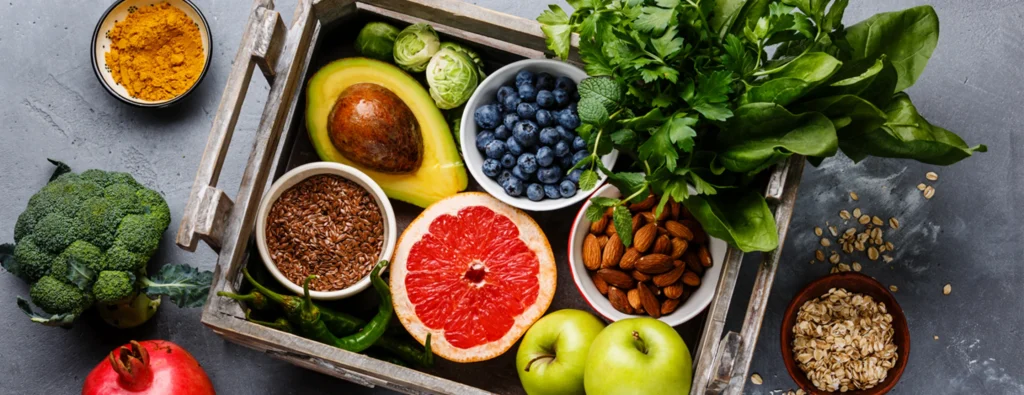Eating a balanced and nutrient-dense diet is crucial for maintaining optimal health. Including a variety of foods rich in essential vitamins and minerals can help improve overall wellness and prevent chronic diseases. Here are the top 10 foods that you should incorporate into your diet for a healthier lifestyle.
1. Leafy Greens
Leafy green vegetables, such as spinach, kale, and collard greens, are packed with vitamins A, C, and K, as well as essential minerals like calcium, iron, and potassium. These nutrient powerhouses also contain antioxidants and fiber, promoting digestive health and reducing inflammation.
2. Berries
Berries, including blueberries, strawberries, raspberries, and blackberries, are rich in antioxidants, vitamins, and fiber. They help protect cells from damage, support a healthy immune system, and may lower the risk of chronic diseases like heart disease and cancer.
3. Fatty Fish
Fatty fish like salmon, mackerel, and sardines are excellent sources of omega-3 fatty acids, which support brain and heart health. These fish also contain high-quality protein and essential vitamins and minerals, such as vitamin D and selenium.
4. Nuts and Seeds
Nuts and seeds, such as almonds, walnuts, chia seeds, and flaxseeds, provide healthy fats, protein, fiber, and essential nutrients like magnesium, potassium, and vitamin E. These nutrient-dense foods can help regulate blood sugar levels, improve heart health, and support overall wellness.
5. Legumes
Legumes, including beans, lentils, and chickpeas, are rich in plant-based protein, fiber, and essential nutrients like iron, magnesium, and potassium. They can help maintain a healthy weight, promote digestive health, and reduce the risk of chronic diseases like diabetes and heart disease.
6. Whole Grains
Whole grains, such as quinoa, brown rice, and whole wheat, provide essential nutrients like B vitamins, iron, and fiber. They support digestive health, help maintain stable blood sugar levels, and may reduce the risk of chronic diseases like heart disease and type 2 diabetes.
7. Yogurt
Yogurt is an excellent source of probiotics, which support a healthy gut microbiome and immune system. It’s also rich in protein, calcium, and essential vitamins like B12. Opt for plain, unsweetened yogurt and add your own fruit or nuts for added flavor and nutrients.
8. Cruciferous Vegetables
Cruciferous vegetables, such as broccoli, cauliflower, and Brussels sprouts, are packed with vitamins, minerals, and antioxidants. They may help reduce inflammation, support liver detoxification, and protect against certain types of cancer.
9. Avocado
Avocado is a nutrient-dense fruit rich in healthy monounsaturated fats, fiber, and essential nutrients like potassium and vitamin E. These healthy fats can help reduce inflammation, support heart health, and promote healthy skin.
10. Dark Chocolate
Dark chocolate, with at least 70% cocoa content, is rich in antioxidants and essential minerals like magnesium and iron. Consumed in moderation, it can help reduce inflammation, improve mood, and support heart health.
Conclusion: Build a Balanced Diet with Nutrient-Rich Foods
Incorporating these top 10 nutrient-rich foods into your diet can help improve overall health and prevent chronic diseases. A balanced diet, combined with regular exercise and stress management, is the foundation for a healthier lifestyle. Prioritize nutrient-dense foods and make mindful choices to create a well-rounded, nourishing meal plan.
Tips for Incorporating Nutrient-Rich Foods into Your Diet
- Start your day with a nutrient-packed breakfast: Include whole grains, fruits, and yogurt in your morning meal for a great start to your day.
- Enjoy colorful salads: Create vibrant salads with leafy greens, a variety of vegetables, and a protein source like beans or grilled chicken.
- Snack on nuts and seeds: Keep a bag of mixed nuts and seeds on hand for a quick, nutrient-dense snack that will keep you satisfied between meals.
- Incorporate fish into your weekly meal plan: Aim to eat fatty fish like salmon or mackerel at least twice a week for a boost of heart-healthy omega-3 fatty acids.
- Experiment with new recipes: Try out new recipes that feature nutrient-rich ingredients, like a quinoa salad with roasted vegetables or a lentil and vegetable stir-fry.
- Make smart swaps: Replace refined grains with whole grains, choose dark chocolate over milk chocolate, and opt for plain yogurt instead of sugar-laden varieties.
- Practice mindful eating: Focus on the taste and texture of nutrient-dense foods, savoring each bite to develop a deeper appreciation for the nourishment they provide.
By making an effort to incorporate these nutrient-rich foods into your daily meals, you’ll be well on your way to a healthier, more balanced lifestyle. Remember that consistency and variety are key in maintaining a nutrient-dense diet that supports optimal health and well-being.


